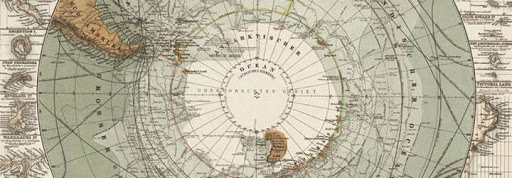GSC Newsletter 21:1 #8
Decolonizing a Historical Field:
Toward a Global Nineteenth Century
Kevin A. Morrison

Although scholars from a wide array of disciplines and subfields work on the nineteenth century, there is no multidisciplinary professional association or journal specifically dedicated to the period. As a result, current societies and journals often end up reproducing nineteenth-century imperial frames in their approaches to globalization. This article reflects on the possibilities and challenges of globalizing a chronological field.
At a time when many scholars are thinking about ways to decolonize historical study, address racial disparity, and forward work by and about people of color and other marginalized groups, the launch of the Society for Global Nineteenth-Century Studies (SGNCS)—which aims to convene its first world congress in 2023—represents a significant effort to expand the disciplinary, racial, ethnic, and methodological diversity of a chronological field. The society aims to be a meeting point for art historians, literary critics, comparatists, historians, musicologists, religious studies scholars, anthropologists, and geographers, among others, who approach the period between 1780 and 1914 from comparative, connective, global, and related perspectives. In addition to a biennial congress, the society’s flagship publication, Global Nineteenth-Century Studies, will serve as a forum for scholars from a wide array of disciplines who share an interest in the world’s connectedness between 1780 and 1914. It aims to publish pioneering essays of transnational, comparative, transimperial, and transatlantic significance while also serving as a venue to debate these terms and their corresponding methodologies and epistemologies. Investigating material culture forms, visual and literary texts, ideas, and sentient beings that transcend national boundaries, essays in the journal will be expected to engage critically with mobility and migration, imperialism and colonialism, and production and distribution, as well as travel, technologies, and varieties of exchange. Global Nineteenth-Century Studies will necessarily welcome submissions that examine Britain and the United States in their imperial and international contexts. After all, at the height of its power in the nineteenth century, Britain was the world’s most expansive empire. It dominated over a quarter of the globe’s population, controlled a fifth of its land surfaces, and ruled the oceans. The United States built a continental empire and acquired significant overseas territories. But the journal will also encourage polycentric approaches and seek to publish work that decenters these nations from the field of inquiry by exploring developments within and among other imperial entities, regions, and nations.
In order to accomplish this goal and attract readers and contributors from diverse disciplines and geographic areas, particular care has been taken to build an editorial board that will help the journal achieve optimal reach and impact through its geographic and disciplinary diversity. Because editorial board members are typically well connected in their fields of expertise, they play a key role in soliciting authors, identifying topics for inclusion, and promoting the journal in their disciplines, fields, and subfields. Lack of disciplinary and geographic diversity has implications for the range of submissions a scholarly outlet receives and hence for the coverage it offers and the community it builds. The editorial board includes representatives from thirteen countries, six continents, and a number of disciplines and fields.
One challenge with which the society and its journal must wrestle is the impossibility of truly globalizing monolingually. Although the journal will include several standing sections whose editors will curate essays that employ non-euromethodologies in their attempts to recuperate alternative, indigenous, and local ways of knowing, the journal will publish in English. A language that is intertwined with colonialism (Hsu 2015; Viswanathan 1989), English has emerged—in part through the dominance of esteemed journal indexes—as the scholarly lingua franca. This has the potential to severely limit the initiative’s panoramic aims.
The society and journal must also guard against the dominance of any one discipline. Victorian Studies—the field to which I belong—is increasingly seen as a subset of English literary studies. Yet as a nexus for scholars hailing from different disciplines but sharing overlapping temporal interests, Victorian Studies at its inception held out the promise of interdisciplinarity. If true interdisciplinarity means creating a field that, belonging to no single discipline, leads to transformative scholarly practices, Victorian Studies has been less than successful. As Steinbach (2017) has noted the consequence of a longstanding “fight between departments of History and English for ownership of Victorian Studies” is “impoverishing” because it has left out “many disciplines, including archaeology, history of art, and musicology” (95). Thus, in endeavoring to serve as a gathering place for scholars hailing from multiple disciplines, SGNCS will need to take heed of earlier initiatives that, while aiming for inclusivity, have fallen well short of this ideal.
References
Hsu, F. 2015. “The Coloniality of Neoliberal English: The Enduring Structures of American Colonial English Instruction in the Philippines and Puerto Rico.” L2 Journal 7.3: 123-145.
Steinbach, S. 2017. “Who Owns the Victorians?,” Journal of Victorian Culture 22.1: 89–98.
Viswanathan, G. 1989. Masks of Conquest: Literary Study and British Rule in India, New York: Columbia University Press.
Kevin A. Morrison is Provincial Chair Professor, University Distinguished Professor, and Professor of British Literature at Henan University and founding editor of Global Nineteenth-Century Studies.
Back to Meridian 1

